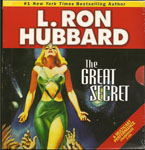
 The SFFaudio Podcast #041 – Jesse and Scott are joined by SF author Robert J. Sawyer to talk about his audiobooks, writing Science Fiction novels, and the TV show based on his novel FlashForward.
The SFFaudio Podcast #041 – Jesse and Scott are joined by SF author Robert J. Sawyer to talk about his audiobooks, writing Science Fiction novels, and the TV show based on his novel FlashForward.
Talked about on today’s show:
FlashForward (the TV series), FlashForward by Robert J. Sawyer, Blackstone Audio, David S. Goyer, Marc Guggenheim, Jessika Borsiczky, Brannon Braga, Lost, Battlestar Galactica, does the TV show of FlashForward have a plan?, idea based SF, time travel, The Time Machine by H.G. Wells |READ OUR REVIEW|, differences between the television show and the novel versions of FlashForward, WWW: Wake by Robert J. Sawyer |READ OUR REVIEW|, Inconstant Moon by Larry Niven, philosophy in Science Fiction, Calculating God by Robert J. Sawyer |READ OUR REVIEW|, Jonathan Davis, Audible Frontiers, atheism and religion in SF, scientific institutions in Science Fiction, The Royal Ontario Museum, CERN, The Sudbury Neutrino Observatory, science, Robin Cook, Michael Crichton, Launchpad Astronomy Workshop, Edward M. Lerner, Joe Haldeman, science literacy amongst Science Fiction authors, Karl Schroeder, Charles Stross, post-singularity SF, Clarke’s Third Law, NASA Ames Research Center, TRIUMF, Human Genome Project, Neanderthal Genome Project, military SF, S.M. Stirling, Harry Turtledove, alternate history, consciousness, aliens, spaceship, time travel, the WWW trilogy, Audible.com, Starplex by Robert J. Sawyer, Star Trek, alien aliens, Larry Niven, Niven’s aliens, Golden Fleece by Robert J. Sawyer, how did fantasy and Science Fiction get lumped together? Donald A. Wollheim, dinosaurs, artificial intelligence, genetics, time travel, the Internet, quantum physics, CBC Radio’s version of Rollback, Alessandro Juliani.
Jessika Borsiczky on adapting the novel of FlashForward to television:
Posted by Jesse Willis

